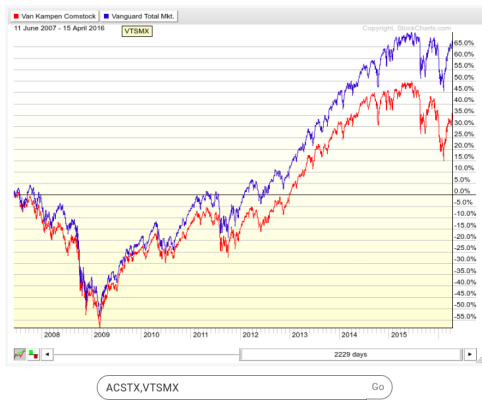Lsbcal
Give me a museum and I'll fill it. (Picasso) Give me a forum ...
This sounds generally correct to me.The main reason that the typical investor under performs the market isn't that they have bad timing when the markets go down, it is that they fail to get back in in time when the markets go back up. They typically lose out on the major upswings.
Well any decent market timing system would have a sell AND buy strategy. Their are probably few good market timing strategies out there and any good ones are probably unpublished (my guess).
There is a very good discussion of some moving average type of market timing with provisions for skipping some sell signals at this site:
1) Trend Following In Financial Markets: A Comprehensive Backtest | PHILOSOPHICAL ECONOMICS
2) Growth and Trend: A Simple, Powerful Technique for Timing the Stock Market | PHILOSOPHICAL ECONOMICS
3) In Search of the Perfect Recession Indicator | PHILOSOPHICAL ECONOMICS
WARNING: These articles are very long and involved.


